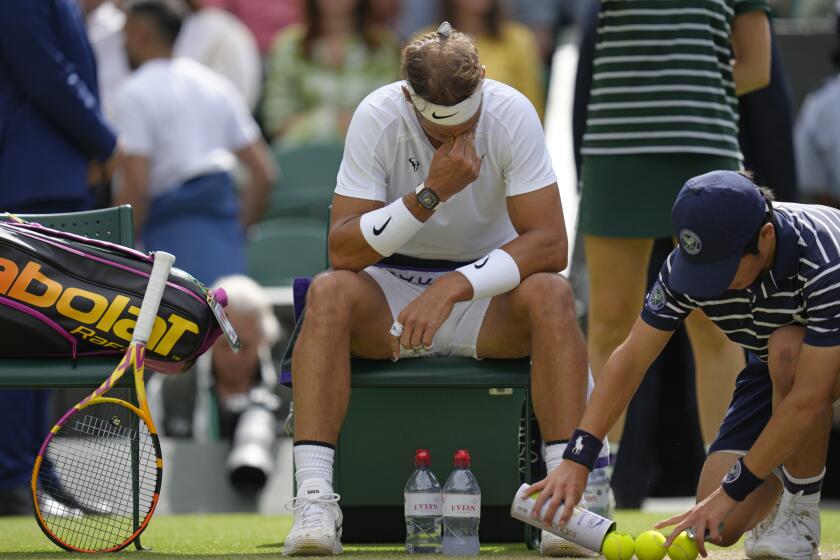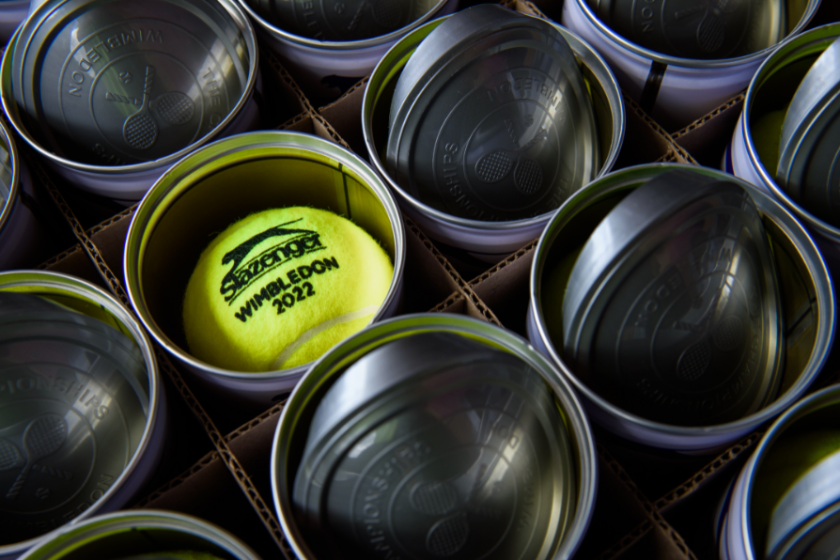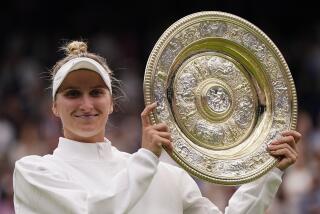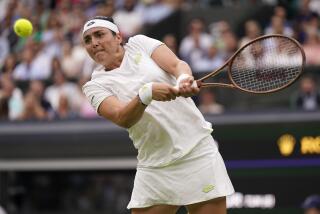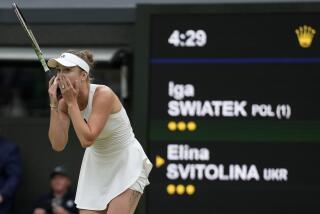How Ons Jabeur brought cheers to Wimbledon; historic final with Elena Rybakina next
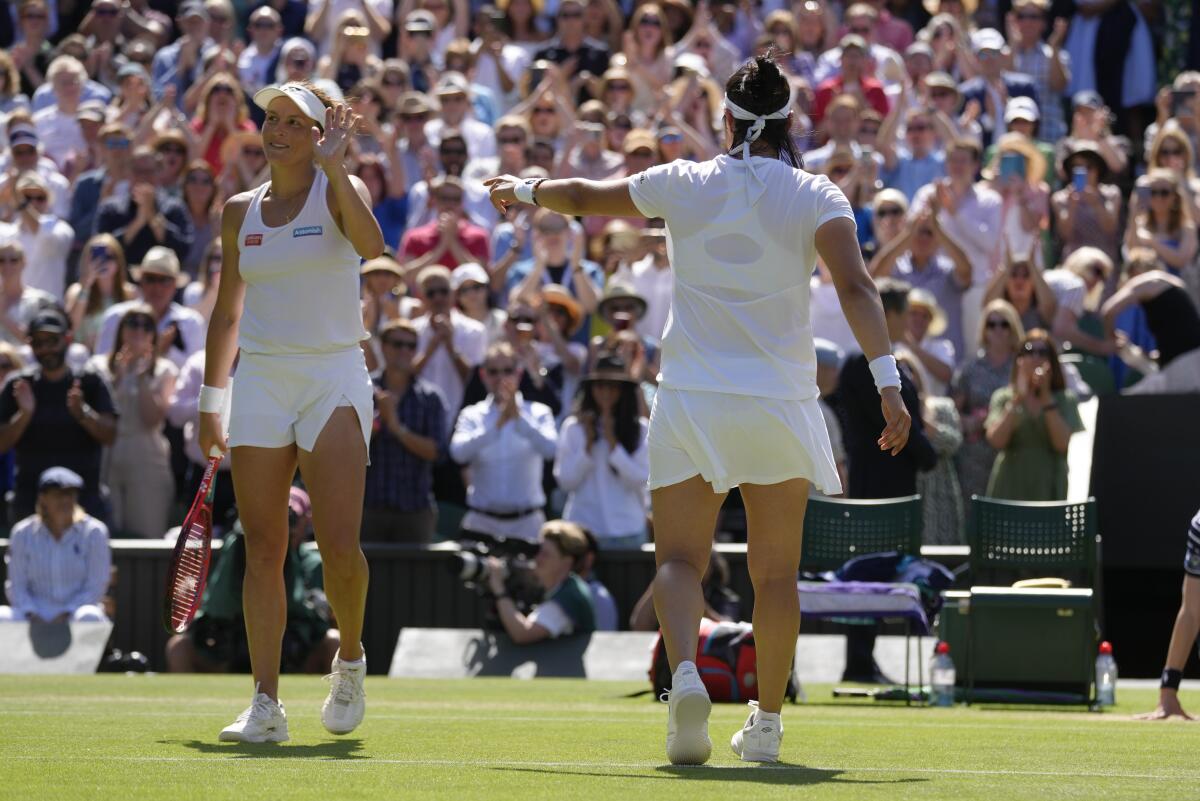
WIMBLEDON, England — In a heartrending display Thursday of grace, generosity and friendship, Ons Jabeur looked to share the cheers and adulation after her historic victory in a Wimbledon women’s semifinal.
The 27-year-old Tunisian coaxed her opponent back onto the court to bask in the cheers after Jabeur defeated close friend Tatjana Maria 6-2, 3-6, 6-1 before an appreciative Centre Court crowd.
“She’s part of our family,” said Germany’s Maria, whose older daughter refers to Jabeur as Aunt Ons. “It was really nice from her that at the end she wanted to celebrate with me even though it was her moment.”
On a day of disappointment for 22-time Grand Slam winner Rafael Nadal — he had to withdraw from Friday’s men’s semifinal because of an abdominal tear — the Jabeur-Maria match was punctuated by a memorable moment of dignity.
Jabeur, who has won 11 consecutive matches and 22 of 24, becomes the first Arab woman to reach a women’s final. She will play Kazakhstan’s Elena Rybakina, who beat Romania’s Simona Halep 6-3, 6-3.
Rafael Nadal withdraws from Wimbledon because of a torn abdominal muscle a day before he was supposed to play in the semifinals against Nick Kyrgios.
It seems every time she steps on the court, Jabeur marks a historic first. At the Australian Open two years ago, she became the first Arab woman to reach the quarterfinals at a major. Last year, she was the first Arab player — woman or man — to crack the top 10 in rankings, first to win a WTA title and to make a quarterfinal appearance at Wimbledon.
“I’m a proud Tunisian woman standing here today,” Jabeur said. “I know in Tunisia, they’re going crazy right now. I just try to inspire, really, as much as I can. I want to see more and more — not just Tunisian — Arab, African players on tour. I just love the game and I want to share this experience with them.”
So popular is the upbeat Jabeur in her home country, she has earned the nickname “Minister of Happiness.”
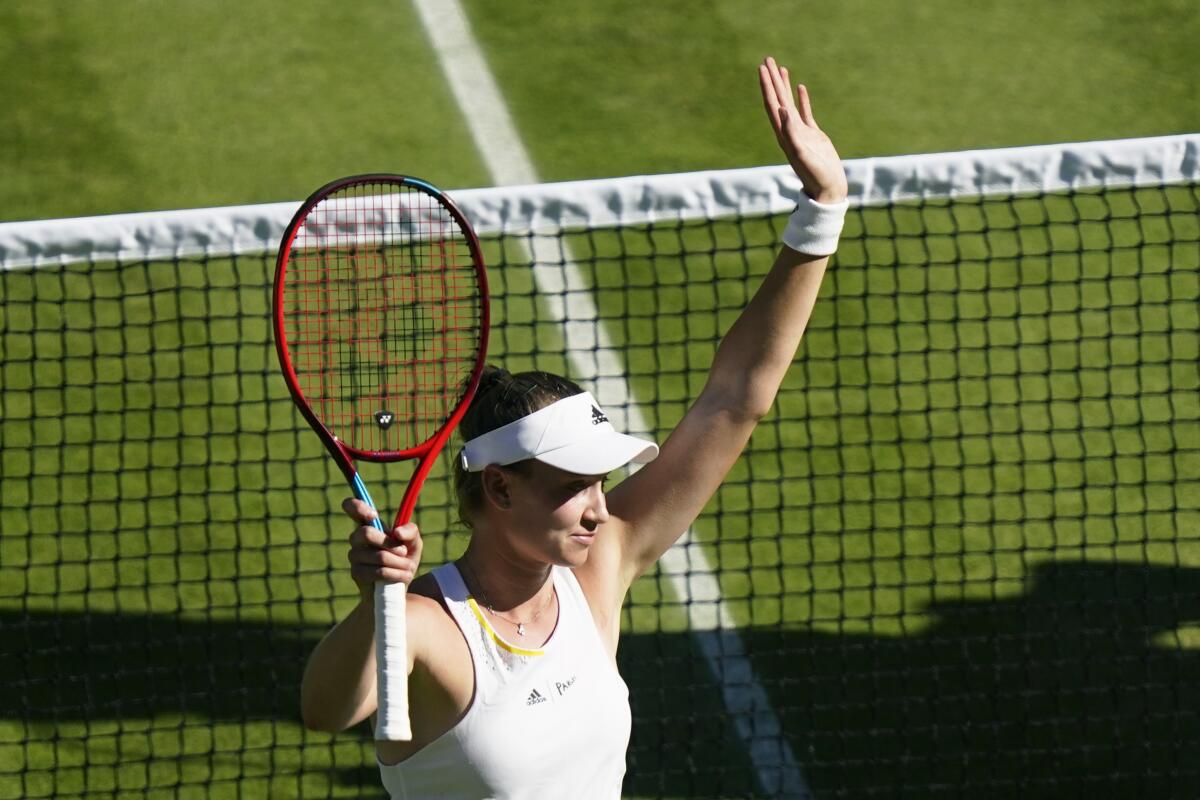
“It’s funny because the actual minister calls me, `Hello, Minister.’ … It’s tough times in Tunisia sometimes. When they see my matches, always say sports always unites people. I’m happy they follow me. They’re pushing me to do better. Hopefully I can keep the title forever.”
Maria, too, was an inspiration, reaching her first Wimbledon semifinal a year after giving birth to her second daughter. Before this, she had never advanced past the second round in any major championship.
“I hope that I can send this message out that I have two kids and I’m on this stage,” she said. “I think everything is possible. I’m 34 years old with two kids and playing my first time semifinal in Wimbledon. So I think maybe people will see that everything is possible.”
Rybakina, as with Jabeur, will be playing in her first Grand Slam final, and she is the first player from Kazakhstan to advance to a major final.
The thousands of balls used every year at Wimbledon might look identical to most, but they can have big differences from a player’s perspective.
“I didn’t expect that I’m going to be here in the second week, especially in the final,” said Rybakina, 23. “I believe that I have a game to go far in the Grand Slams. Of course, I believe that maybe one day I can win it.”
Halep, who won the French Open in 2018 and Wimbledon in 2019, had not lost a set in this year’s championships heading into the semifinals.
“I improved a lot in my serve the last three months,” Halep said. “But today I feel like I went back to my normal one. Many double-faults and too soft.”
More to Read
Go beyond the scoreboard
Get the latest on L.A.'s teams in the daily Sports Report newsletter.
You may occasionally receive promotional content from the Los Angeles Times.

